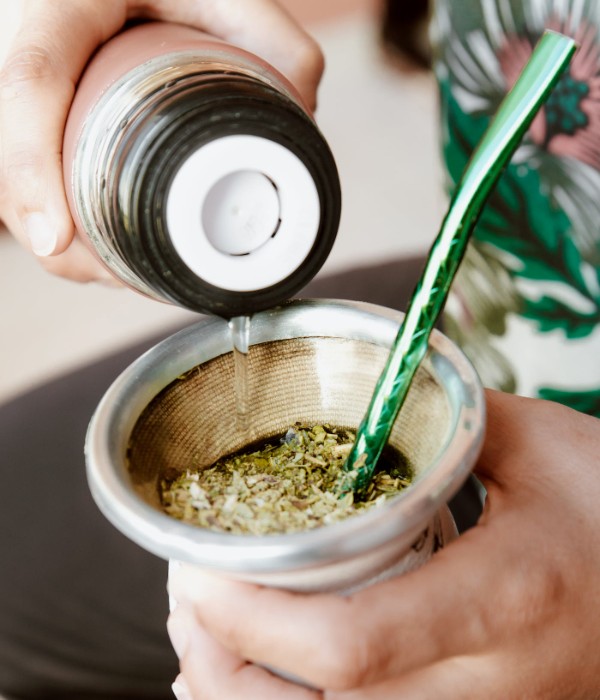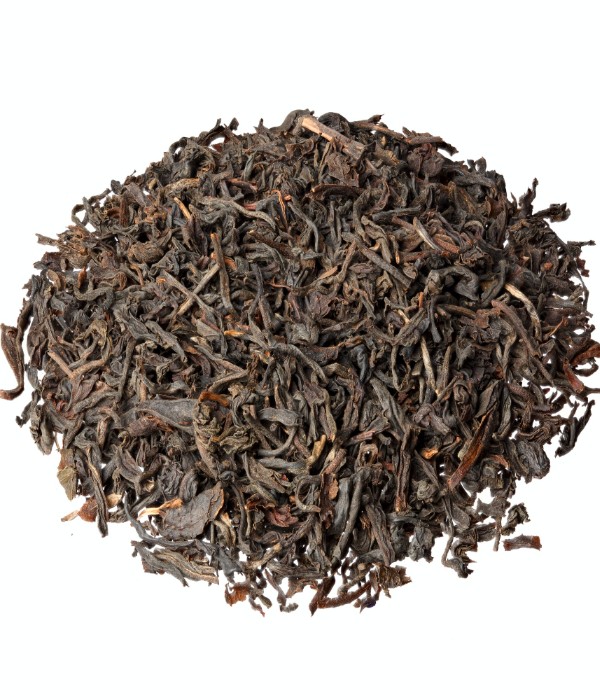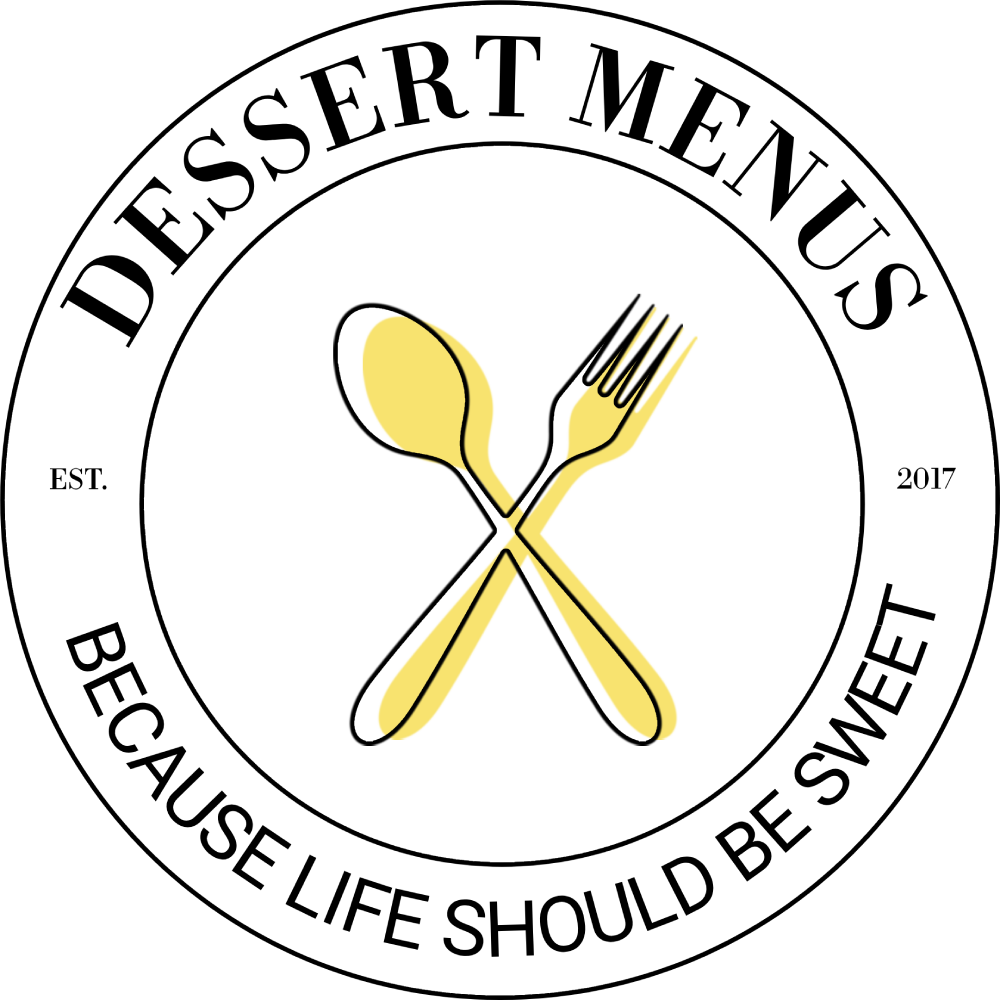One of the best ways to boost your energy levels naturally is by drinking tea.
Whether you’re looking for a morning pick-me-up or a mid-day boost, there are different teas for energy that may help keep you going throughout the day.
In this post, I’ll introduce some of the most popular energy-boosting teas and explain why they provide longer-lasting sustained energy without the jitters and energy crash associated with coffee.
Key Highlights
- Some of the best teas for energy are Matcha, Black, Oolong, and Green tea.
- Herbal teas that are high in caffeine and are natural energy boosters include Yerba Mate, Guayusa, and Yaupon tea.
- Matcha tea is one of the best naturally energizing teas since it contains caffeine and high levels of L-theanine.
The Best Teas for Energy
Some of the most effective teas that can help you increase energy levels naturally are:
- Yerba Mate
- Guayusa Tea
- Yaupon Tea
- Black Tea
- Matcha
- Green Tea
- Oolong Tea
All of these teas (some true teas, some herbal infusions) have one thing in common: they all contain caffeine.
Now let’s see the characteristics of each one of them.
Yerba Mate
Often labeled “Yerba Mate Tea,” this beverage isn’t actually tea because it isn’t made from the Camellia sinensis plant, which is the source of black, green, white, oolong, and pu-erh tea.
This tea/infusion or naturally caffeinated drink is made from the leaves and twigs of the Ilex paraguariensis plant.
It’s mostly consumed in South America, especially in Argentina, Paraguay, Uruguay, Chile, and Brazil.
The main characteristic of yerba mate is that it is usually drunk from a gourd with a bombilla (a metal straw with a strainer at the end).

Now that we’ve identified the basic features, let’s look at why Yerba Mate is considered one of the best natural energy-boosting teas.
Yerba mate naturally contains caffeine. The caffeine content in an average cup (5 oz; 150 ml) of Yerba Mate tea is around 80 mg.
These amounts can vary in range from 25 to 175 mg/g depending on how the brew is prepared, the type used, etc. In general, Yerba Mate drunk the traditional way has the highest caffeine levels, whereas Yerba Mate brewed with tea bags has the lowest caffeine levels.
So, this is a high-caffeine beverage, and consuming it will energize you in the same way as coffee does, but without the jitters and energy crash.
This is because yerba mate leaves contain trace levels of theobromine and theophylline (known stimulants).
Caffeine, theobromine, and theophylline are the three compounds that give this tea its typical bitter flavor and stimulating effect. These three boosters work together to have a different effect than coffee.
Moreover, the caffeine is delivered slowly and steadily, resulting in a longer and smoother energy impact that lasts for hours, far longer than the energy boost from coffee.
Guayusa Tea
This is not technically tea but an herbal infusion prepared from the leaves of the holly tree Ilex guayusa, which grows in the Amazon rainforest. In Ecuador, this is a popular herbal tea for boosting energy. Ecuadorians have traditionally drank guayusa tea to increase alertness, especially while working.
One 8-oz cup of Guayusa herbal tea prepared with 2 grams of leaves and steeped for 4-6 minutes has 40–50 mg of caffeine.
This amount varies according to the number of leaves used, the temperature of the water, the steep time, and other factors.
Theobromine is another ingredient in this natural energy drink, along with caffeine. Caffeine and theobromine have been shown to increase mood, alertness, and focus.
The flavor of Guayusa is similar to that of Yerba Mate, but with more fruity notes and a complete lack of bitterness.
All in all, Guayusa is a unique tea that offers a great taste and a boost in energy. It’s also an excellent choice for people looking for a more consistent energy boost without the jitters and crash associated with coffee.
Yaupon Tea
This is another herbal tea that is made from the leaves of the yaupon plant, one of the rarest naturally caffeinated wild plants in North America.
Since the berries of this plant are poisonous, only the leaves may be used to make yaupon tea.
Although Native Americans were the first to discover this plant, the tea was just rediscovered and is now available worldwide.
Because it contains caffeine, theobromine, and theophylline, it is highly beneficial for boosting energy levels. A cup of Yaupon tea typically contains roughly 60 mg of caffeine.
Caffeine levels in yaupon tea vary based on various factors, including the type of yaupon holly used, the brewing method, and the steeping duration.
Similar to Yerba Mate, the combination of theobromine, theophylline, and caffeine in Yaupon tea delivers longer-lasting energy that is “jitter-free.”
Another interesting element of this tea is that it is high in antioxidants and does not have a bitter taste due to its natural absence of tannin. So there’s no need to be concerned with water temperature, steep time, or anything else.
Black Tea
Black tea is one of the best teas for energy and is consumed by a lot of people around the world.
This is a true tea since it’s made from the tea plant (Camellia sinensis).
Among all true teas, black tea usually contains the highest caffeine levels, depending on the type you choose, the brewing temperature, the steeping time, etc.
The caffeine content in an 8 oz (240 ml) cup of black tea is around 47 mg. It can vary from 40 to 80 mg per cup.

Tea drinkers consume black tea as an alternative to coffee not just because it contains caffeine but also because it contains L-theanine.
L-theanine is an amino acid that lessens the stimulating impact of caffeine, resulting in a calm focus and more prolonged energy. It also helps to minimize the bad side effects of caffeine, such as jitteriness.
This combination of caffeine and L-theanine in black tea and all true teas is what makes the difference between the stimulant effects of tea and coffee or other artificial energy drinks.
Furthermore, black tea is high in other beneficial compounds, making it an ideal alternative to coffee or other artificial energy drinks.
Matcha
Matcha green tea powder is quite popular these days since it can be used to make tea, cook with, and make the incredibly popular matcha latte.
This tea may be the most effective natural energizer.
It’s high in caffeine, usually about 64 mg per 8-oz cup, and this level can vary between 38 and 88 mg per cup.
It also contains a lot of L-theanine. As previously stated, all true teas include L-theanine; however, matcha has up to five times the amount of L-theanine as any generic green tea.
You’ll get a consistent and long-lasting energy boost with matcha tea, which may continue for up to 4-6 hours without the quick energy spike and crash associated with coffee.
Because there are many details on matcha as an energy drink, here is a full article on how long matcha provides energy and why it is superior to coffee for an energy boost.
Green Tea
Despite the fact that green tea has less caffeine than the other teas listed here, it is an excellent tea for increasing energy.
Green tea contains between 20 and 50 mg of caffeine per usual cup, with the average being about 30 mg.
Some green tea types, such as Gyokuro, may have considerably more caffeine.
Due to shading before harvesting, high-quality, exceptionally tasty Japanese Gyokuro green tea may contain up to 90 mg of caffeine per 6 oz cup.
Green tea, like black tea and matcha, contains L-theanine and is an excellent choice for quiet relaxation and an energy boost (It works great for the 3 p.m. slump.)
Oolong Tea
This semi-oxidized true tea, which stands somewhere between unoxidized green tea and fully oxidized black tea, is an excellent choice for energy stability.
Its caffeine levels are somewhere between green and black tea, usually around 37 mg per 8-oz cup. There are many different types of oolong tea, all with different levels of caffeine.
Wuyi Oolong Tea (Da Hong Pao) is one of the most expensive teas in the world.
While oolong tea may not have the greatest caffeine content, it is still a wonderful tea for energy and offers just the right touch of kick.
Also, keep in mind that high-quality oolong tea is usually more expensive than green or black tea.
| TEA | Average caffeine per cup in mg |
|---|---|
| Yerba Mate | 80 |
| Matcha | 64 |
| Yaupon Tea | 60 |
| Black Tea | 47 |
| Guayusa Tea | 41 |
| Oolong Tea | 37 |
| Green Tea | 30 |
Note: The caffeine levels presented in the table and in this article are just averages. These levels vary depending on how the tea is brewed (water temperature, steep time, leaf-to-water ratio, etc.).
Always ask your tea provider about the caffeine levels in your favorite tea.
Also, if your tea is too strong, you can reduce its caffeine content by a small percentage. For this purpose, here is a detailed article that explains how to reduce the amount of caffeine in your tea at home.
Tea or Coffee for Energy?
It all depends on your preferences: if you want a quick energy boost, coffee is the way to go; if you want a gentle energy increase that lasts longer without a sudden energy crash, tea is the way to go.
All true teas (black, green, oolong, white, and pu-erh) are great energy boosters since they contain caffeine.
They are also high in antioxidants and L-theanine, both of which help boost energy and mood. Tea can also aid to promote general health and well-being, which can lead to higher energy levels.
Since the caffeine levels of the teas made from the Camellia sinensis plant vary, I’ve created a detailed article about high-caffeine teas that you can find here.
Also, some herbal infusions (Yerba Mate, Guayusa, and Yaupon tea) are naturally high in caffeine and other beneficial compounds, making them an excellent alternative to coffee or artificial energy drinks.
How Much Tea Should You Drink for Energy?
Limit your consumption to 2-3 cups a day, since most of the teas for energy contain caffeine. It’s recommended to limit your caffeine consumption to no more than 400 mg a day.
Caffeine tolerance varies from person to person. So, pay attention to how your body reacts to caffeine and adjust your consumption accordingly.
If you are sensitive to caffeine or want to avoid teas rich in caffeine, you can opt for herbal teas that are caffeine-free.
For example, these are good herbal teas for an energy boost:
- Ginseng tea
- Peppermint tea
- Rooibos tea
- Ginger tea
Also, don’t forget that you can’t rely only on tea as a sole source of energy. It is important to maintain a balanced diet and engage in regular physical activity for sustained energy throughout the day.
The Best Time to Consume Tea for Energy
The best time to drink energy-boosting tea is determined by your own needs and schedule. Caffeine-containing tea is best consumed in the morning, an hour after breakfast, or in the early afternoon.
Caffeine-rich tea should be avoided late in the day or in the evening since it may disrupt your sleep. In the evening, you can drink caffeine-free herbal tea.
Additionally, if you are drinking the tea as a pick-me-up, you may want to drink it when you are tired or need an energy boost.
Always be cautious of how much caffeine you consume during the day, and if you’re having difficulties sleeping, it could be worth lowering your tea intake or switching to a decaf tea.
How to Pick the Best Energy-Boosting Tea for You
When choosing a tea for energy, it’s important to consider the caffeine content as well as any other ingredients that may have an impact on your energy levels.
The best approach is to try different teas and determine which one is best for you. This may be done by choosing one energy tea and drinking it for at least a week.
You will be able to observe how the tea changes your energy levels and how long that energy lasts by doing so.
Everyone is unique; some prefer stronger tea while others do not. So it’s always a good idea to experiment with different teas and find the one that works best for you.
The Takeaway
Drinking tea is a natural way to boost energy levels. There are many energy teas to choose from, ranging from high caffeine to low caffeine and even herbal teas.
If you want tea with lower caffeine levels, opt for green or oolong tea. For a stronger tea, try black tea or matcha. If you like herbal tea flavors, you might try yerba mate, guayusa, or yaupon Tea.
Be careful; all of these teas contain caffeine, even the herbal infusions mentioned here, so enjoy your tea in moderation and listen to your body.
Avoid consuming tea high in caffeine late in the day or in the evening since it may affect your sleep.
You can experiment with different energy teas to see which one works best for you. Every tea is unique, with different caffeine levels and unique flavors and colors.

